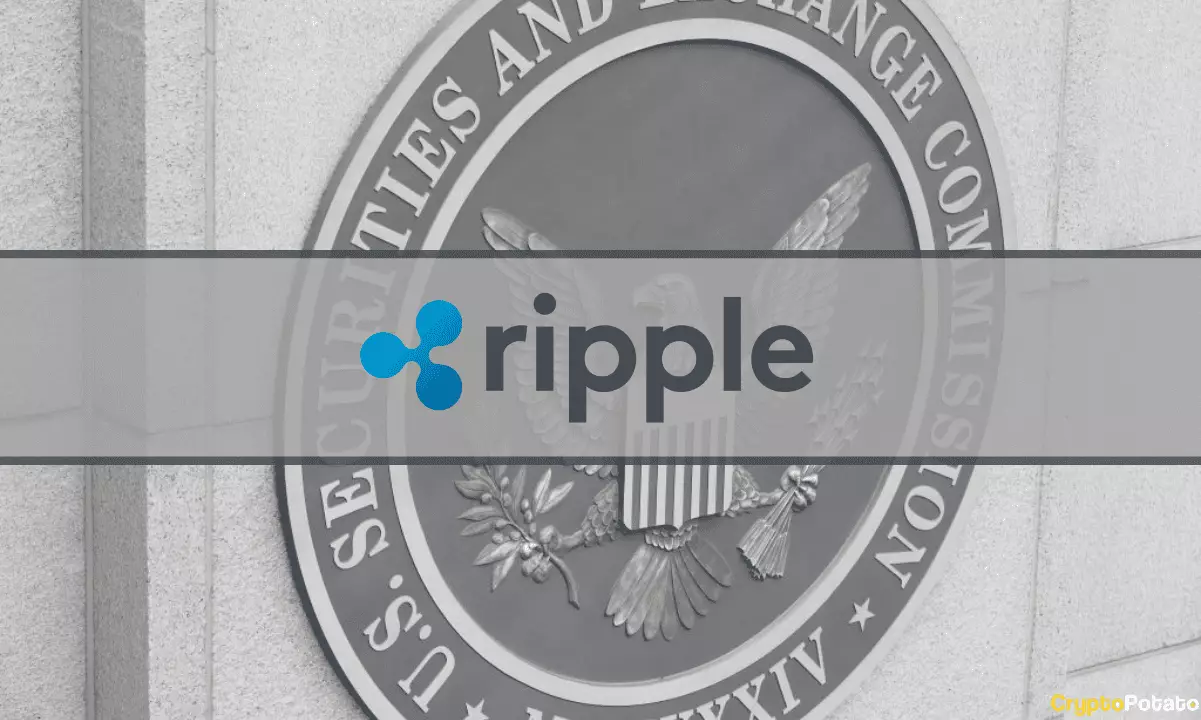On October 2, 2023, the U.S. Securities and Exchange Commission (SEC) made headlines by filing an appeal in its ongoing legal battle against Ripple Labs concerning its XRP token. This appeal seeks to overturn a significant ruling made earlier this year by Judge Analisa Torres, which determined that the secondary sales of XRP do not meet the criteria to be classified as securities sales. The verdict was pivotal, negating the SEC’s stance on Ripple’s operations being inherently tied to the sale of securities as informed by the Howey test, a crucial legal benchmark for determining what constitutes investment contracts in the U.S.
The filing, which was announced by attorney James Filan on the social media platform X, has drawn mixed reactions from different stakeholders involved in the cryptocurrency landscape. Ripple’s legal chief, Stuart Alderoty, expressed disappointment yet acknowledged the predictability of the SEC’s actions. He labeled the ongoing battle as “a complete embarrassment for the agency,” emphasizing that Ripple had already successfully countered the SEC’s previous claims of reckless behavior and misconduct with no evidence of fraud involved.
Ripple’s CEO, Brad Garlinghouse, took to social media to voice his thoughts on the SEC’s appeal, challenging the leadership of the commission, particularly SEC Chair Gary Gensler. Garlinghouse asserted that any rational entity would have chosen to abandon this case earlier, suggesting that the SEC was operating from a space of misguided aggression. He underscored that the ruling affirming XRP’s status as a non-security is an established fact that remains unshaken despite the regulatory body’s attempts to prolong the matter through legal avenues.
This contention has broader implications within the cryptocurrency market, where fluctuations in asset price are frequently tied to regulatory developments. Garlinghouse’s commitment to fighting back against the SEC underscores a sentiment shared by many in the crypto community: that the SEC’s overreach is not merely a company-specific issue, but a wider battle for the industry’s future.
Adding to the chorus of criticism directed at the SEC, Massachusetts Senate candidate John Deaton aired his grievances, pinpointing the agency’s alleged overreach and challenges to due process. Unconventionally vocal for a political candidate, Deaton expressed his frustration, having invested considerable time and resources advocating against what he viewed as the SEC’s unjust tactics. His comments reflect a growing discontent not only among Ripple stakeholders but also among broader crypto enthusiasts who perceive the regulatory push as an existential threat to innovation and economic freedom.
Deaton’s remarks carry weight, particularly within a political framework where regulatory bodies are expected to support rather than stifle industry growth. His declaration that the SEC is pursuing an “anti-crypto agenda” raises critical questions about the role of government oversight in new technological sectors and where boundaries should be drawn between regulation and innovation.
Market Reactions: XRP’s Price Turmoil and Investor Sentiment
The appeal’s announcement quickly impacted XRP’s market performance, leading to a notable decline in price. On the day of the appeal, XRP experienced a sharp 12% decline, dropping from over $0.60 to just below $0.53. This downturn has sent shockwaves through the trading community, with many XRP holders appearing to lose faith in the asset’s upcoming prospects.
What’s particularly alarming for investors is not just the immediate price drop but the broader context of market confidence. XRP remains down approximately 84% from its peak in January 2018, a point that highlights the prolonged negative effects of regulatory uncertainties on the cryptocurrency market. Such fluctuations underscore the volatility inherent in crypto investments, often compounded by factors beyond market fundamentals.
As the SEC’s legal maneuvering continues, the Ripple saga presents a fundamental question about the future relationships between regulatory agencies and cryptocurrency firms. The outcome of this case could set a significant precedent, influencing not only Ripple’s operations but also the regulatory landscape affecting countless other digital assets.
The Ripple lawsuit encapsulates a vital moment in the life of cryptocurrency. It reflects ongoing tensions between innovation and regulation, questioning the efficacy and motivations behind governmental oversight. As stakeholders await further developments, the outcome will undoubtedly resonate beyond Ripple, potentially reshaping the future of cryptocurrency regulation in the United States.
















Leave a Reply